2021 LTER Synthesis Awards: Reproduction and Resilience
Two new synthesis working groups, awarded in 2021, capitalize on the intensive and extended record of observation at LTER sites to shed light on thorny ecological questions.
Two new synthesis working groups, awarded in 2021, capitalize on the intensive and extended record of observation at LTER sites to shed light on thorny ecological questions.
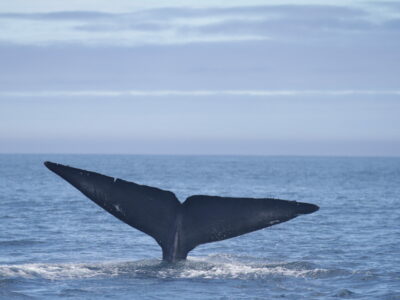
Every year, the Eastern North Pacific population of blue whales migrates between their winter calving grounds off the coast of Mexico and their summer feeding grounds in the California coastal region. Scientists know that they time their migration to coincide with peak prey abundances, but the cues they use for this have been unknown—until now…. Read more »
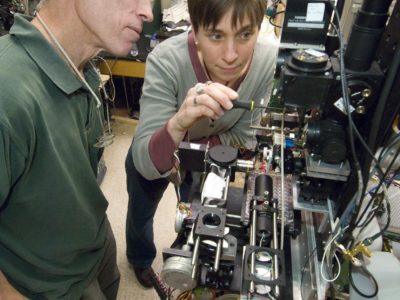
Thanks to automated imaging approaches developed by NES LTER researchers, unprecedented insight has been gained into variations in microzooplankton biomass and diversity across a broad range of space and time scales. In addition, studies in Narragansett Bay documented strong microzooplankton grazing pressure on phytoplankton throughout the year, irrespective of season.
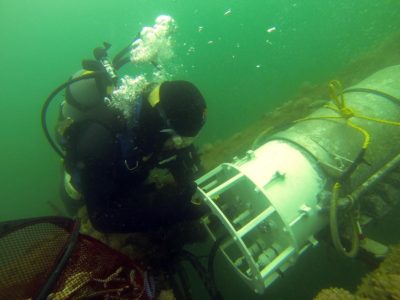
Phytoplankton bloom dynamics at Martha’s Vineyard Coastal Observatory (MVCO) are sensitive to temperature variability on both seasonal and decadal scales. Multi-year sampling has shown that the genetic background of phytoplankton is diverse and changes rapidly in coastal shelf waters. Ongoing NES LTER observations emphasize the complementary nature of multiple approaches (sequencing, imaging, and flow cytometry)… Read more »
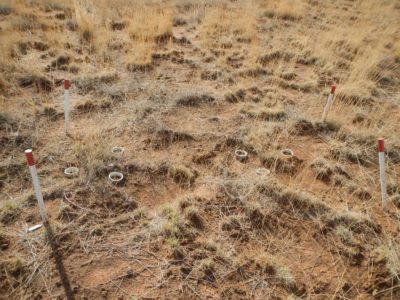
Credit: Anny ChungResearchers at SEV LTER led efforts to characterize fungi and bacteria in drylands and document their responses to environmental change. SEV LTER pioneered new assays of microbial function, including carbon use efficiency and ecoenzymatic stoichiometry. They quantified how microbes in roots maintain plant species coexistence and temporal stability in plant communities and how… Read more »
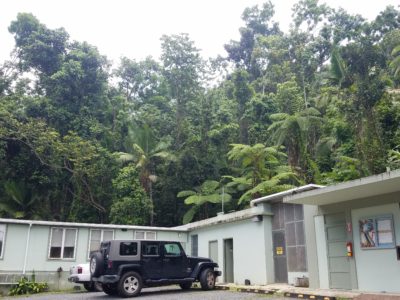
The long term Canopy Trimming Experiment revealed many important aspects of hurricane disturbance, particularly that canopy opening caused more change in biota and biogeochemistry than debris deposition. More frequent disturbance led to canopy opening but less debris deposition, and changed forest species composition, which may alter resilience in the face of future disturbances. Frequent hurricane… Read more »
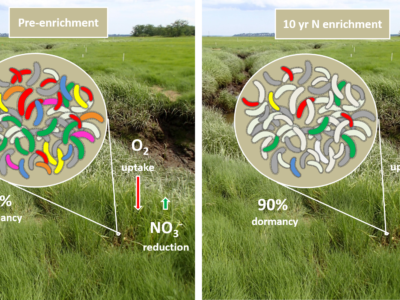
Credit: Ashley N. Bulseco et alA decade of nutrient enrichment significantly increased rates of oxygen uptake and nitrate reduction in sediment. Surprisingly, the proportion of the dormant microbial population increased (overall composition of the microbial community remained unchanged). This response to a perturbation may reflect the microbial community’s strategy for maintaining diversity in a highly… Read more »
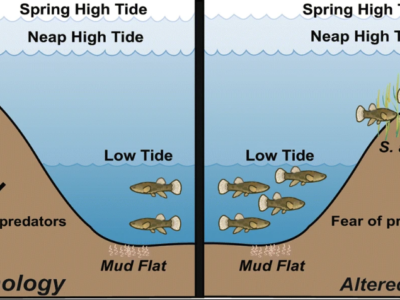
For the first six years of an ongoing 13-year nitrate addition experiment in tidal creeks, benthic algae, invertebrate prey, and a small fish, the mummichog, showed a classic positive bottom-up response to added nutrients. However, after six years, creek banks began to collapse and mummichog abundance in fertilized creeks declined relative to reference sites, likely… Read more »
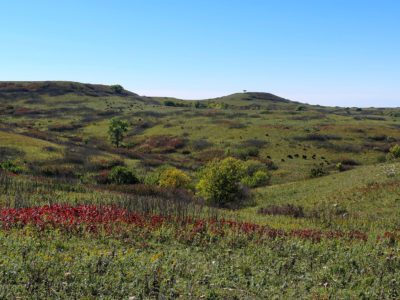
Credit: Jill HaukosExperiments at KNZ LTER have identified significant time lags between treatment initiation and sustained community effects. At a minimum, these times lags are 3-6 years for water and nutrient manipulations, but can be decades according to fire suppression and woody plant expansion studies. Decreases in plant diversity evident in the first few years… Read more »
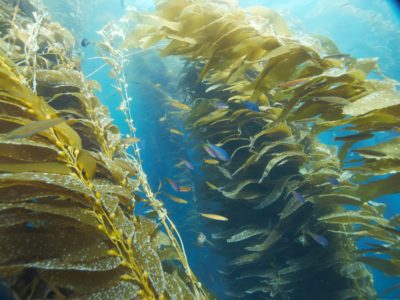
Credit: Brandon DohenyResults from long term measurements and experiments reveal that climate-driven disturbances that alter giant kelp abundance cascade through the kelp forest community, affecting biodiversity and ecosystem function. These effects are due to kelp’s overwhelming influence on environmental conditions and habitat availability rather than its effects as a food source for fauna.
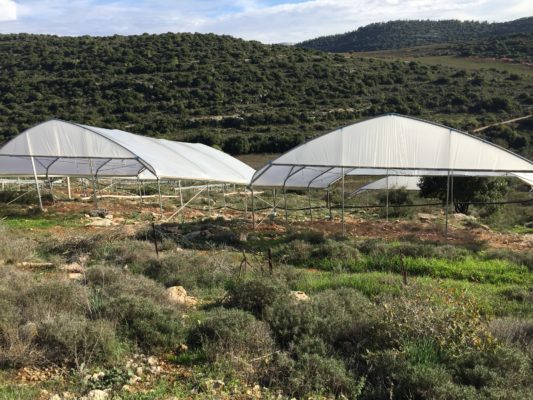 International Drought Experiment" data-envira-gallery-id="site_images_82560" data-envira-index="5" data-envira-item-id="82314" data-envira-src="https://lternet.edu/wp-content/uploads/2020/01/Matta_rainout-533x400.jpeg" data-envira-srcset="https://lternet.edu/wp-content/uploads/2020/01/Matta_rainout-533x400.jpeg 400w, https://lternet.edu/wp-content/uploads/2020/01/Matta_rainout-533x400.jpeg 2x" data-title="Matta_rainout" itemprop="thumbnailUrl" data-no-lazy="1" data-envirabox="site_images_82560" data-automatic-caption="Matta_rainout -
International Drought Experiment" data-envira-gallery-id="site_images_82560" data-envira-index="5" data-envira-item-id="82314" data-envira-src="https://lternet.edu/wp-content/uploads/2020/01/Matta_rainout-533x400.jpeg" data-envira-srcset="https://lternet.edu/wp-content/uploads/2020/01/Matta_rainout-533x400.jpeg 400w, https://lternet.edu/wp-content/uploads/2020/01/Matta_rainout-533x400.jpeg 2x" data-title="Matta_rainout" itemprop="thumbnailUrl" data-no-lazy="1" data-envirabox="site_images_82560" data-automatic-caption="Matta_rainout - Researchers use rainout shelters at the Matta International LTER site in Israel to simulate extended droughts and observe changes in ecosystem productivity and species composition. The Matta site is part of a distributed network of over 100 sites across the globe inspired by long term experiments of the U.S. LTER Network. Similar structures without plastic panels serve as controls. Image courtesy of International Drought Experiment
" data-envira-height="225" data-envira-width="300" />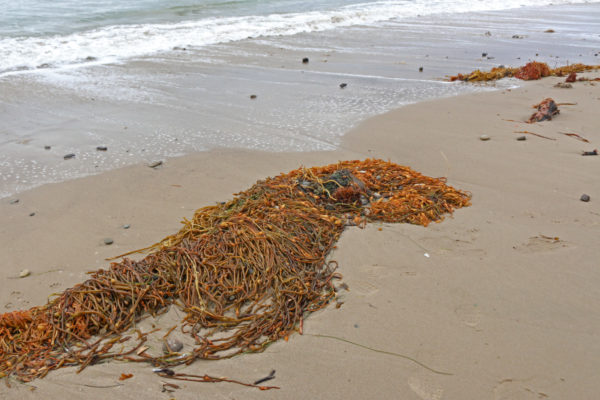 E Zambello/LTER-NCO CC BY 4.0" data-envira-gallery-id="site_images_82560" data-envira-index="9" data-envira-item-id="80758" data-envira-src="https://lternet.edu/wp-content/uploads/2019/01/sb-49-600x400.jpg" data-envira-srcset="https://lternet.edu/wp-content/uploads/2019/01/sb-49-600x400.jpg 400w, https://lternet.edu/wp-content/uploads/2019/01/sb-49-600x400.jpg 2x" data-title="sb 49" itemprop="thumbnailUrl" data-no-lazy="1" data-envirabox="site_images_82560" data-automatic-caption="sb 49 -
E Zambello/LTER-NCO CC BY 4.0" data-envira-gallery-id="site_images_82560" data-envira-index="9" data-envira-item-id="80758" data-envira-src="https://lternet.edu/wp-content/uploads/2019/01/sb-49-600x400.jpg" data-envira-srcset="https://lternet.edu/wp-content/uploads/2019/01/sb-49-600x400.jpg 400w, https://lternet.edu/wp-content/uploads/2019/01/sb-49-600x400.jpg 2x" data-title="sb 49" itemprop="thumbnailUrl" data-no-lazy="1" data-envirabox="site_images_82560" data-automatic-caption="sb 49 - Beach wrack (kelp and other ocean debris washed ashore) is prime habitat for beach hoppers and many other tiny nearshore animals. E Zambello/LTER-NCO CC BY 4.0
" data-envira-height="199" data-envira-width="300" />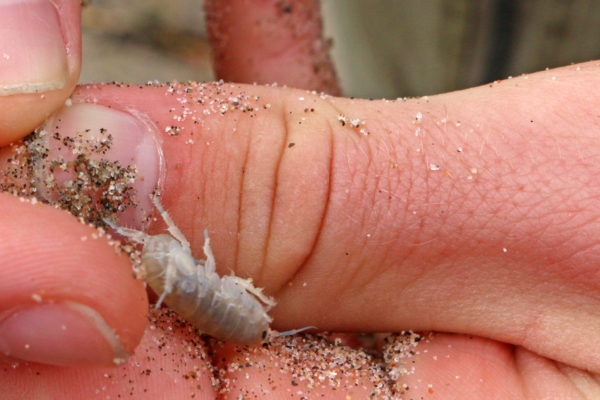 E Zambello/LTER-NCO CC BY 4.0" data-envira-gallery-id="site_images_82560" data-envira-index="10" data-envira-item-id="80757" data-envira-src="https://lternet.edu/wp-content/uploads/2019/01/sb-40-600x400.jpg" data-envira-srcset="https://lternet.edu/wp-content/uploads/2019/01/sb-40-600x400.jpg 400w, https://lternet.edu/wp-content/uploads/2019/01/sb-40-600x400.jpg 2x" data-title="sb 40" itemprop="thumbnailUrl" data-no-lazy="1" data-envirabox="site_images_82560" data-automatic-caption="sb 40 -
E Zambello/LTER-NCO CC BY 4.0" data-envira-gallery-id="site_images_82560" data-envira-index="10" data-envira-item-id="80757" data-envira-src="https://lternet.edu/wp-content/uploads/2019/01/sb-40-600x400.jpg" data-envira-srcset="https://lternet.edu/wp-content/uploads/2019/01/sb-40-600x400.jpg 400w, https://lternet.edu/wp-content/uploads/2019/01/sb-40-600x400.jpg 2x" data-title="sb 40" itemprop="thumbnailUrl" data-no-lazy="1" data-envirabox="site_images_82560" data-automatic-caption="sb 40 - Beach hoppers (also called sand fleas) are tiny crustaceans that make up an important part of the shoreline food web. E Zambello/LTER-NCO CC BY 4.0
" data-envira-height="213" data-envira-width="300" />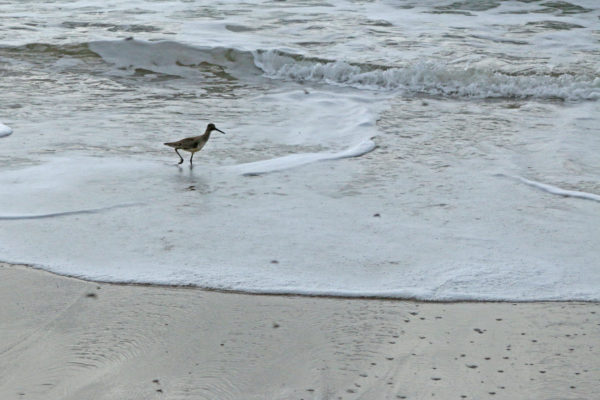 E Zambello/LTER-NCO CC BY 4.0" data-envira-gallery-id="site_images_82560" data-envira-index="11" data-envira-item-id="80756" data-envira-src="https://lternet.edu/wp-content/uploads/2019/01/sb-33-600x400.jpg" data-envira-srcset="https://lternet.edu/wp-content/uploads/2019/01/sb-33-600x400.jpg 400w, https://lternet.edu/wp-content/uploads/2019/01/sb-33-600x400.jpg 2x" data-title="sb 33" itemprop="thumbnailUrl" data-no-lazy="1" data-envirabox="site_images_82560" data-automatic-caption="sb 33 -
E Zambello/LTER-NCO CC BY 4.0" data-envira-gallery-id="site_images_82560" data-envira-index="11" data-envira-item-id="80756" data-envira-src="https://lternet.edu/wp-content/uploads/2019/01/sb-33-600x400.jpg" data-envira-srcset="https://lternet.edu/wp-content/uploads/2019/01/sb-33-600x400.jpg 400w, https://lternet.edu/wp-content/uploads/2019/01/sb-33-600x400.jpg 2x" data-title="sb 33" itemprop="thumbnailUrl" data-no-lazy="1" data-envirabox="site_images_82560" data-automatic-caption="sb 33 - A hungry shorebird searches for tiny crustaceans - including beach hoppers - to pluck from the shoreline. E Zambello/LTER-NCO CC BY 4.0
" data-envira-height="201" data-envira-width="300" />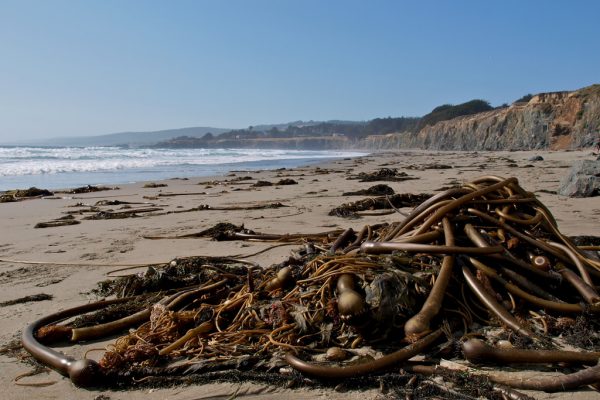 Ingrid Taylar. CC BY 2.0" data-envira-gallery-id="site_images_82560" data-envira-index="23" data-envira-item-id="46943" data-envira-src="https://lternet.edu/wp-content/uploads/2017/11/3660520317_f1cff7961e_b-600x400.jpg" data-envira-srcset="https://lternet.edu/wp-content/uploads/2017/11/3660520317_f1cff7961e_b-600x400.jpg 400w, https://lternet.edu/wp-content/uploads/2017/11/3660520317_f1cff7961e_b-600x400.jpg 2x" data-title="3660520317_f1cff7961e_b" itemprop="thumbnailUrl" data-no-lazy="1" data-envirabox="site_images_82560" data-automatic-caption="3660520317_f1cff7961e_b - Ingrid Taylar. CC BY 2.0" data-envira-height="224" data-envira-width="300" />
Ingrid Taylar. CC BY 2.0" data-envira-gallery-id="site_images_82560" data-envira-index="23" data-envira-item-id="46943" data-envira-src="https://lternet.edu/wp-content/uploads/2017/11/3660520317_f1cff7961e_b-600x400.jpg" data-envira-srcset="https://lternet.edu/wp-content/uploads/2017/11/3660520317_f1cff7961e_b-600x400.jpg 400w, https://lternet.edu/wp-content/uploads/2017/11/3660520317_f1cff7961e_b-600x400.jpg 2x" data-title="3660520317_f1cff7961e_b" itemprop="thumbnailUrl" data-no-lazy="1" data-envirabox="site_images_82560" data-automatic-caption="3660520317_f1cff7961e_b - Ingrid Taylar. CC BY 2.0" data-envira-height="224" data-envira-width="300" />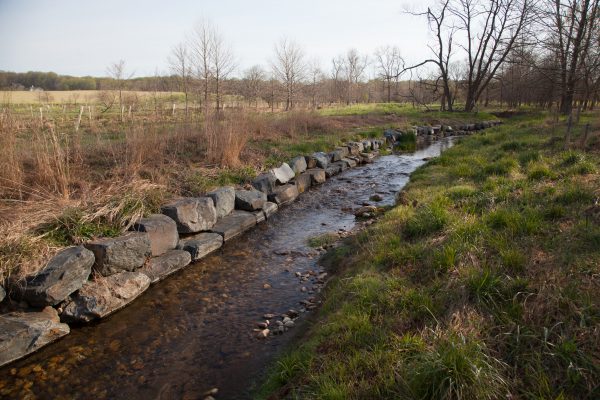 Chesapeake Bay Program. CC BY-NC 2.0." data-envira-gallery-id="site_images_82560" data-envira-index="24" data-envira-item-id="46942" data-envira-src="https://lternet.edu/wp-content/uploads/2017/11/30914015212_906755c25b_k-600x400.jpg" data-envira-srcset="https://lternet.edu/wp-content/uploads/2017/11/30914015212_906755c25b_k-600x400.jpg 400w, https://lternet.edu/wp-content/uploads/2017/11/30914015212_906755c25b_k-600x400.jpg 2x" data-title="30914015212_906755c25b_k" itemprop="thumbnailUrl" data-no-lazy="1" data-envirabox="site_images_82560" data-automatic-caption="30914015212_906755c25b_k - Forest buffer in Baltimore County, MD. Chesapeake Bay Program. CC BY-NC 2.0." data-envira-height="200" data-envira-width="300" />
Chesapeake Bay Program. CC BY-NC 2.0." data-envira-gallery-id="site_images_82560" data-envira-index="24" data-envira-item-id="46942" data-envira-src="https://lternet.edu/wp-content/uploads/2017/11/30914015212_906755c25b_k-600x400.jpg" data-envira-srcset="https://lternet.edu/wp-content/uploads/2017/11/30914015212_906755c25b_k-600x400.jpg 400w, https://lternet.edu/wp-content/uploads/2017/11/30914015212_906755c25b_k-600x400.jpg 2x" data-title="30914015212_906755c25b_k" itemprop="thumbnailUrl" data-no-lazy="1" data-envirabox="site_images_82560" data-automatic-caption="30914015212_906755c25b_k - Forest buffer in Baltimore County, MD. Chesapeake Bay Program. CC BY-NC 2.0." data-envira-height="200" data-envira-width="300" />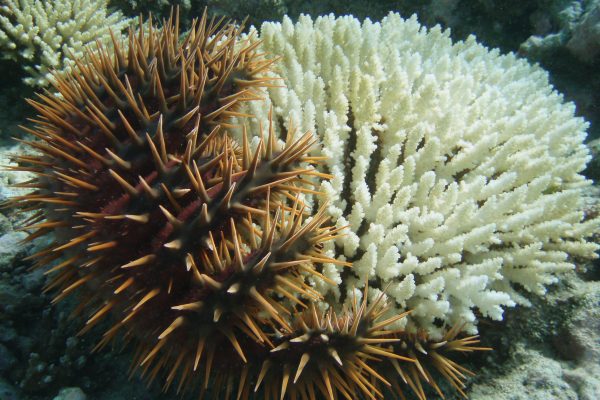 CC BY-SA 4.0" data-envira-gallery-id="site_images_82560" data-envira-index="36" data-envira-item-id="46180" data-envira-src="https://lternet.edu/wp-content/uploads/2017/11/P7193263-copy-600x400.jpg" data-envira-srcset="https://lternet.edu/wp-content/uploads/2017/11/P7193263-copy-600x400.jpg 400w, https://lternet.edu/wp-content/uploads/2017/11/P7193263-copy-600x400.jpg 2x" data-title="Crown-of-thorns Sea Star" itemprop="thumbnailUrl" data-no-lazy="1" data-envirabox="site_images_82560" data-automatic-caption="Crown-of-thorns Sea Star -
CC BY-SA 4.0" data-envira-gallery-id="site_images_82560" data-envira-index="36" data-envira-item-id="46180" data-envira-src="https://lternet.edu/wp-content/uploads/2017/11/P7193263-copy-600x400.jpg" data-envira-srcset="https://lternet.edu/wp-content/uploads/2017/11/P7193263-copy-600x400.jpg 400w, https://lternet.edu/wp-content/uploads/2017/11/P7193263-copy-600x400.jpg 2x" data-title="Crown-of-thorns Sea Star" itemprop="thumbnailUrl" data-no-lazy="1" data-envirabox="site_images_82560" data-automatic-caption="Crown-of-thorns Sea Star - A Crown_of-thorns seastar or COTS (Acanthaster planci) feeding on a coral colony. MCR LTER. CC BY-SA 4.0
" data-envira-height="201" data-envira-width="300" />